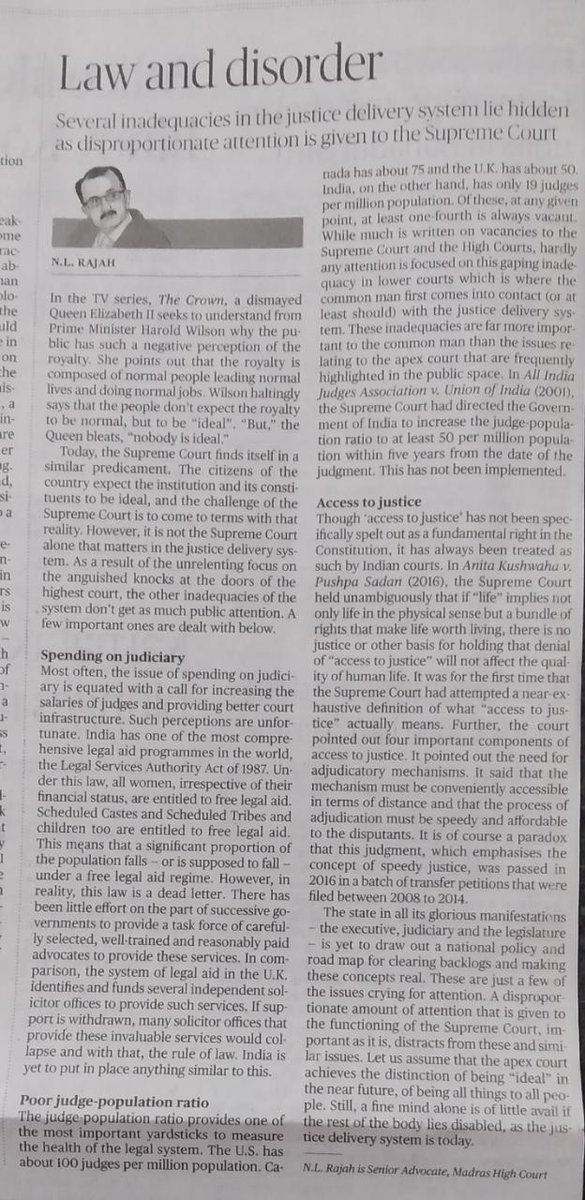
Access to Justice and Judge-Population ratio
Any healthy legal system is measured on yardstick of effective adjudicatory mechanism & the Judge-Population ratio. India amongst countries like US , UK & Canada has lowest Judge population ratio of 19 Judges per million population.
Any healthy legal system is measured on yardstick of effective adjudicatory mechanism & the Judge-Population ratio. India amongst countries like US , UK & Canada has lowest Judge population ratio of 19 Judges per million population.

It was way back in year 2001 when #SupremeCourt in (All India Judges Association v Union of India) expressed concern and noted that this ration shall be increased to at least 50 per million population within five years but this has not happened even almost two decades later.
As per India Justice Report 2019 at all India level there is just one subordinate court judge for 50,000 people. It includes almost 17-19 large-sized states which assimilate 90% of population. The #vacancy rate is 37% in HC's as only 680 of 1049 sanctioned strength are occupied.
As per the report, there has been acute reluctance by govt. in budgetary allocation to the judiciary & then spending it on the courts actually. In the year 2015-16, only Delhi spent 1% of its allocated budget while nationally the spending is at of 0.8% on Judicial Infrastructure.
Senior Advocate of Madras HC, NL Rajah today in @the_hindu highlighted that denial to "access to justice" affects the quality of human life and poor judge-population ratio and ineffective budgetary allocation on Judiciary affects the standard of life of citizens.
#Justice
#Justice

Find the India Justice Report 2019 here tatatrusts.org/upload/pdf/ove…
• • •
Missing some Tweet in this thread? You can try to
force a refresh



